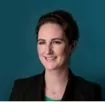The Department for Culture Media and Sport has published a consultation on the possibility of amending some areas of broadcasting regulations, including:
- the "must offer/must carry" rules under the Communications Act 2003;
- section 73 of the Copyright, Designs and Patents Act 1998;
- the Technical Platform Service Rules; and
- Ofcom's EFG code, made under section 310 of the Communications Act 2003.
This article will focus on the EPG Code but for more details on the other areas of the consultation, please visit https://www.gov.uk/government/consultations/the-balance-of-payments-between-television-platforms-and-public-service-broadcasters-consultation-paper.
Electronic Programme Guides ("EPG"s) provide users of television and radio with regularly updated menus displaying broadcast programming or scheduling information for past, current and future programming, together with access to these programmes. The EPG information is transmitted as a broadcast signal, which is then interpreted by either the built on receiver in the TV set itself or an adjoining set-top box.
The EPG Code requires EPG providers to give appropriate prominence to all public service broadcaster ("PSB") channels. The intention of this had been to ensure that PSB content is easily found by viewers. Ofcom's Code permits a measure of discrimination in favour of PSB channels but is not prescriptive about what appropriate prominence means. The layout of the EPG, its functionality and the number of channels accessible varies from service to service, but often they have a main section headed by the 5 terrestrial PSBs (BBC1, BBC2, ITV, Channel 4 and Channel 5).
The rationale behind the proposed reforms is because methods used to access PSB content is changing, as the number of platforms for access increases (for example, the arrival of smart TVs which makes it possible to browse the internet through the TV, and therefore access on-demand services), and so there is less need for the regulation as currently exists. The current regulation may also have less impact if PSBs have more freedom to negotiate commercial agreements for the carriage of its services with platforms in the future (as may be brought about by the changes to the "must offer/must carry" rules, highlighted above).
The proposals are to create a technologically neutral EPG definition, to include PSB video-on-demand content in the prominence regime, and to extend the current licensing system to cover all EPGs, even those on smart TVs. Further proposed changes also include giving greater prominence to PSB HD channels.
Responses to the consultation are requested by 16 June 2015.
The content of this article is intended to provide a general guide to the subject matter. Specialist advice should be sought about your specific circumstances.
[View Source]

